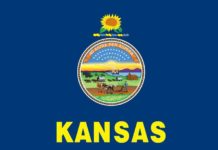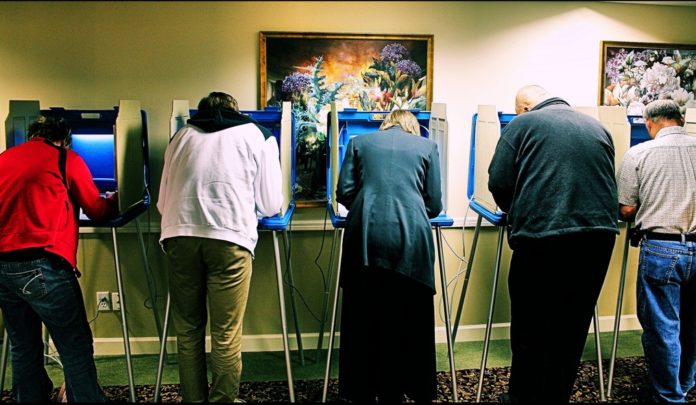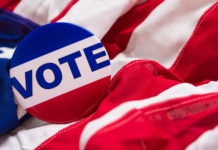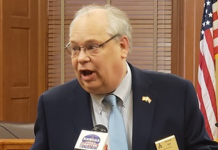The House elections committee on Thursday rejected a bill that would have ended the three-day grace period for voters to mail their ballots to local elections office.
The committee late Thursday afternoon voted down the bill, which would have required advance ballots by mail to be received by no later than 7 p.m. on Election Day.
The bill, backed by the nonprofit Opportunity Solutions Project, would have reversed a 2017 law that allows ballots postmarked on or before Election Day to be accepted on the Friday after the election.
It’s one of several bills introduced this year that are aimed at restricting the availability of voting with the intent of enhancing the integrity of Kansas elections, although state officials said there’s no evidence of election fraud.
It’s a bill that was considered last year in the Kansas Senate but died in a committee after there was no evidence to show that the grace period led to voter fraud.
“I understand that certain people within the general population feel that there weren’t fair elections,” said Democratic state Rep. Dan Osman of Overland Park.
“This bill is trying to solve an issue that there’s no evidence of an issue to solve,” Osman said. “I don’t see a need for a bill that tries to rectify a problem that does not exist.”
Opponents of the bill used a letter from the office of former Kansas Secretary of State Kris Kobach – who gained notoriety making claims about voter fraud – to make their case against the bill. The letter was submitted by Kobach’s elections director, Bryan Caskey.
The 2017 letter talked about how the U.S. Postal Service had reduced the locations for processing mail in Kansas and the subsequent increase in delivery time.
“I would suggest to you that has not changed and probably has only gotten worse,” said Republican state Rep. Jesse Borjon of Topeka.
“I think this underlying bill sends the wrong message,” he said.
Republican state Rep. Ken Collins of Mulberry admittedly doesn’t like mail-in ballots but said the current law is necessary to make up for slow mail delivery.
“The mail processing has gotten really slow,” Collins said. “Now, sometimes I have mail that takes a week or two for me to get.
“I don’t like the idea of mail-in ballots, but I think a three-day grace period is the reasonable option,” he said.
Setting the deadline at 7 p.m. on Election Day would lose many voters who are trying to make a sincere effort to get their ballots in on time.
The secretary of state’s office reported that more than 32,000 ballots came into election offices after the 2020 general election.
The office reported that 17,224 postmarked ballots came in on the Wednesday after the election, 10,790 were returned the Thursday after the election and 4,353 came in on that Friday following the election.
Republican state Rep. Pat Proctor of Leavenworth supported the bill, remarking how many Democrats on the committee were embracing a letter from Kobach’s office.
“Kansas voters are smart enough to figure out what the rules are and follow the rules,” Proctor said.
The bill also was supported by Republican state Rep. Tatum Lee of Ness City, who said she received dozens of emails from people across the state Thursday “who are not only asking, but demanding that our elections are fair and that they have integrity in them.”
“I think that it’s just fair to the people that we let our colleagues to decide.”
The Opportunity Solutions Project, a conservative nonprofit think tank based in Florida, argued that the grace period could delay election results.
“Allowing absentee ballots not received until three days after the election invites this delay and doubt into Kansas elections,” the group argued, “and that’s not good for Kansas or its voters.”
















